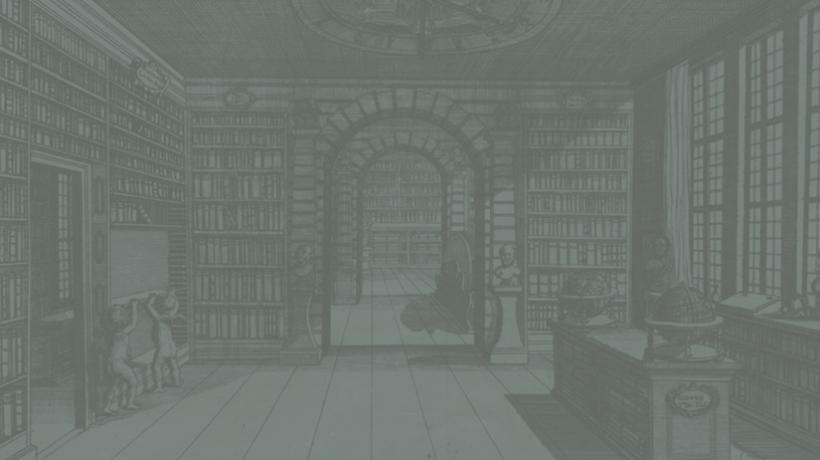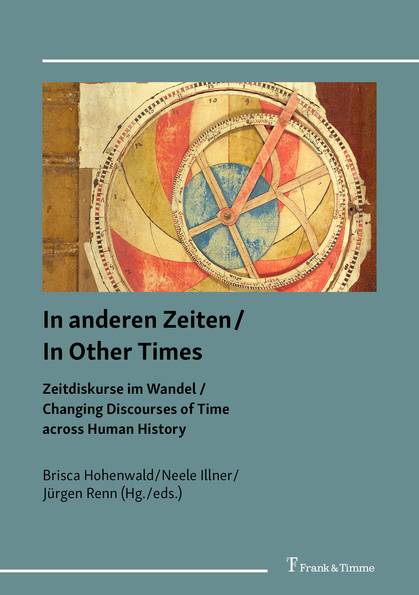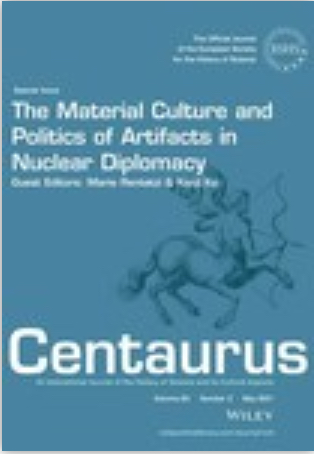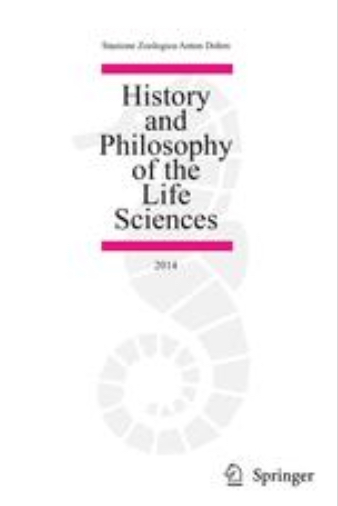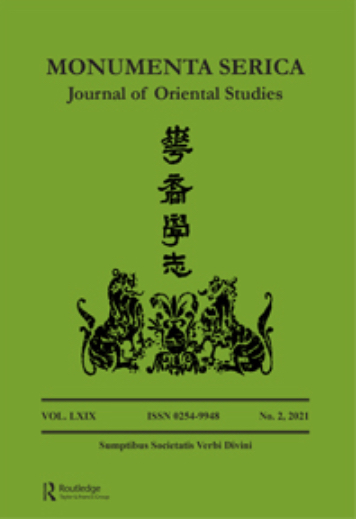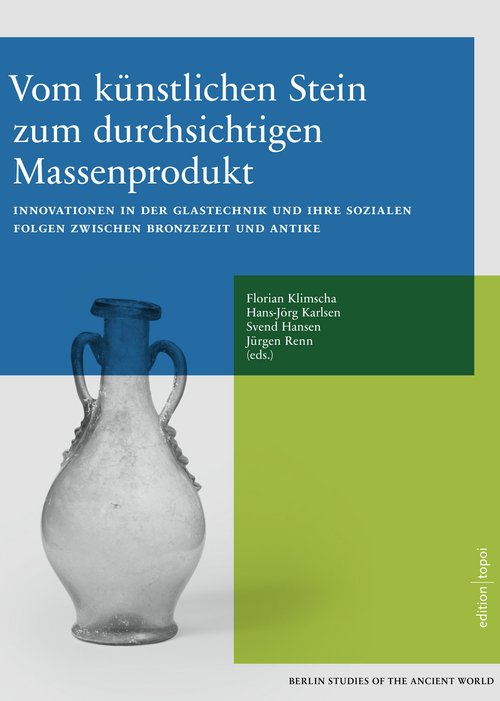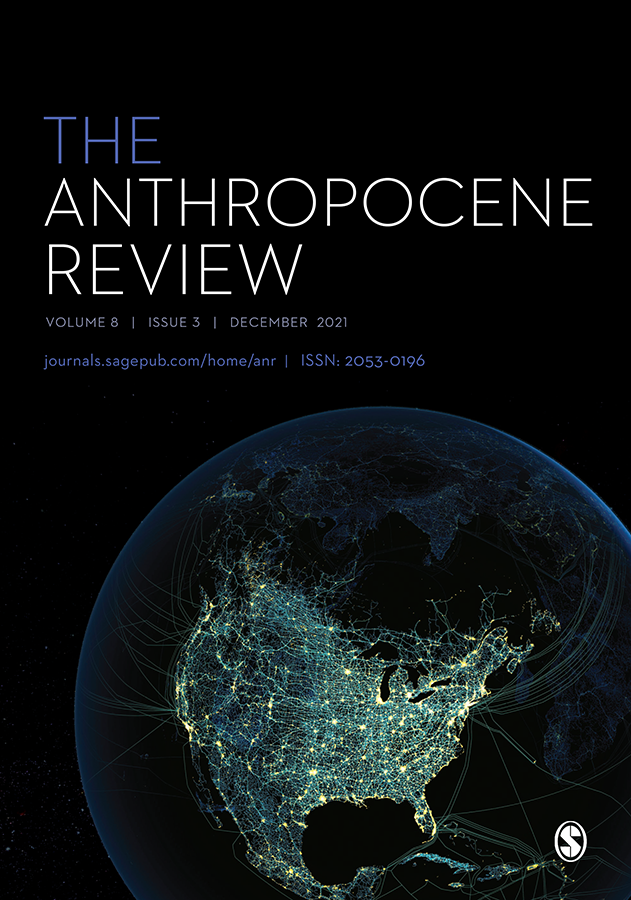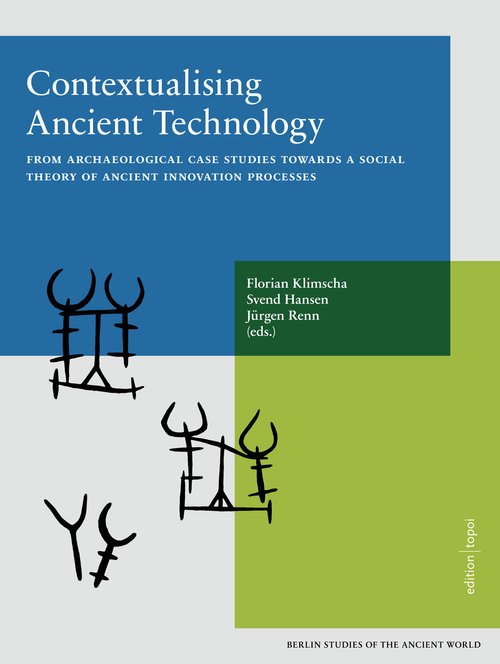Special Issue (Working Group Volume)
The Material Culture and Politics of Artifacts in Nuclear Diplomacy
This special issue stresses the importance of material culture in diplomatic studies of science and technology.
MORE
Special Issue (Working Group Volume)
Seeing Clearly Through COVID-19
The essays appearing in the Topical Collection initiative "Seeing Clearly Through COVID-19" follow a short-form essay format.
MORE
Special Issue (Working Group Volume)
Local Uses of Geographical Knowledge in Imperial China
Contributions to the International Workshop “Locality and Geographical Knowledge in Imperial China”. Max Planck Institute for the History of Science (MPIWG), Berlin, 29 June to 1 July 2020
MORE
Working Group Volume
Vom Künstlichen Stein zum durchsichtigen Massenprodukt: Innovationen in der Glastechnik und ihre sozialen Folgen zwischen Bronzezeit und Antike
-
Klimscha, FlorianKarlsen, HansjörgHansen, SvendJürgen Renn
Glas ist das erste von Menschen hergestellte Material, das nicht in der Natur vorkommt. Als Endprodukt eines komplexen Herstellungsprozesses hat Glas auch keine Ähnlichkeit mit den Ausgangsmaterialien. Glas wird in der Bronzezeit im östlichen Mittelmeerraum erfunden und als künstlicher Edelstein u.a. für prachtvolle Schmuckgegenstände, Architekturelemente und Gefäße genutzt.
MORE
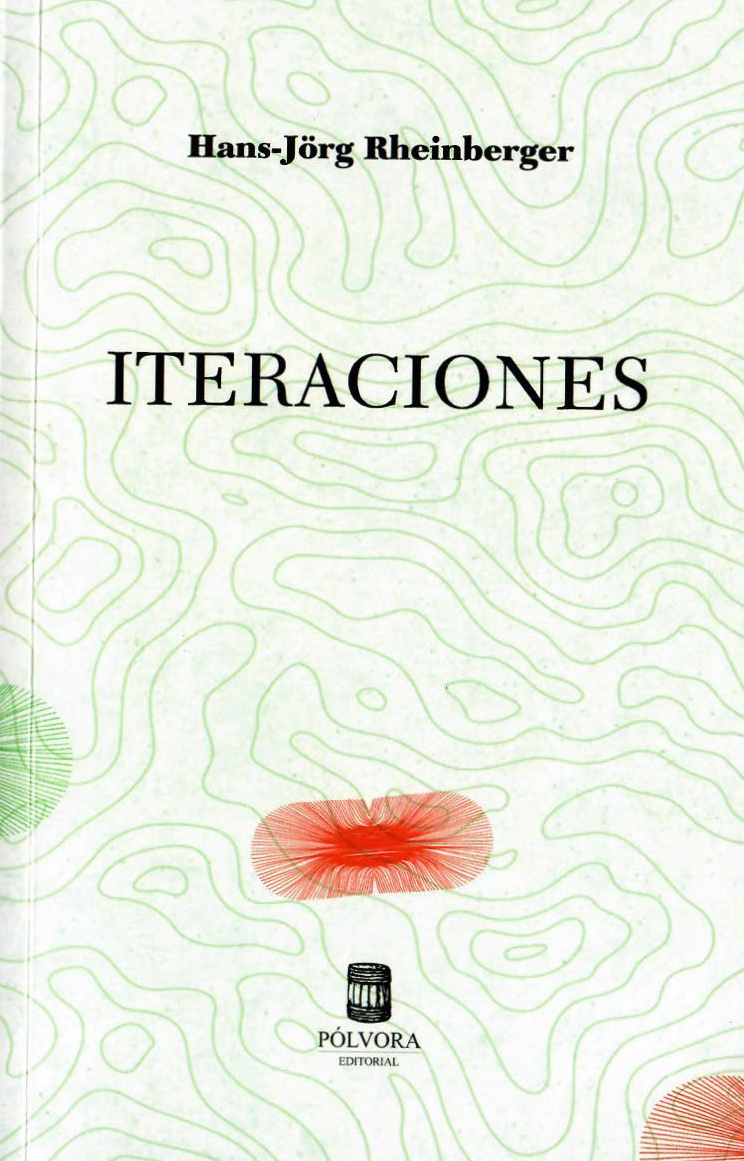
Book
Iteraciones
Iteraciones Los seis ensayos que componen este libro transitan en los márgenes del sentido de la búsqueda científica y en lo impredecible en los procesos de experimentación. A través de la epistemología histórica, su experiencia de laboratorio y su interpretación novedosa de la filosofía de Jacques Derrida, Rheinberger problematiza la creatividad en los contextos científicos, la legitimación de sus objetos y la presentación de sus resultados.
MORE
Book
Motion and Genetic Definitions in the Sixteenth-Century Euclidean Tradition
A significant number of works have set forth, over the past decades, the emphasis laid by seventeenth-century mathematicians and philosophers on motion and kinematic notions in geometry. These works demonstrated the crucial role attributed in this context to genetic definitions, which state the mode of generation of geometrical objects instead of their essential properties.
MORE
Book
Yuanzili de shengming: fangshexingtongweisu zai kexue he yixue zhong de lishi 原子力的生命: 放射性同位素在科学和医学中的历史 [Life Atomic: A History of Radioisotopes in Science and Medicine]
Chinese Translation of the Book " Life Atomic: A History of Radioisotopes in Science and Medicine", University of Chicago Press 2013 translated by Wang Juechun 王珏纯.
MORE
Edited Book
Moritz Schlick: Texte zur Quantentheorie
MORE
Book
Historia del columpio
La fascinante historia, alejada del parque infantil, de un artilugio empapado de magia, pasiones, leyendas, ritos, goce, erotismo, diversión o muerte.
El columpio ha acompañado a los seres humanos desde la Grecia clásica o la China preimperial. Sus usos han labrado un terreno fecundo entre el arte y la vida, entre el ritual y el conocimiento, entre la cultura y el juego.
MORE
Special Issue (Working Group Volume)
The Mississippi Papers (Part 1 & 2)
MORE
Book
Minerva meets Vulcan: Scientific and Technological Literature, 1450–1750
This book offers a comprehensive study and account of the co-evolution of technological and scientific literature in the early modern period (1450-1750). It examines the various relationships of these literatures in six areas of knowledge - Architecture, Chemistry, Gunnery, Mechanical Engineering, Mining, and Practical Mathematics - which represent the main types of advanced technological and scientific knowledge of the era.
MORE
Working Group Volume
Contextualising Ancient Technology: From Archaeological Case Studies Towards a Social Theory of Ancient Innovation Processes
-
Klimscha, FlorianHansen, SvendJürgen Renn
The diffusion of innovations from the Near East into the ‘static’ surrounding peripheries has become a well-known archaeological paradigm, often summed up as Ex Oriente Lux.
MORE
Book
Raum-Maschine Reichsautobahn
Kaum ein Bauwerk prägt unsere Umgebung wie die Autobahn. Ihre festen Fahrbahnen, weiten Linien und ihre kreuzungsfreie Netzgestalt bilden ein System, ohne das kein Supermarkt, kein Gewerbegebiet und keine Fußgängerzone funktionieren. Und obwohl die Nationalsozialisten die Autobahn bekanntermaßen nicht erfunden haben, so wurde das Fundament für den europäischen Hauptverkehrsweg doch von 1934 bis 1942 in die Landschaft betoniert.
MORE
Book
The Astronomer's Chair: A Visual and Cultural History
The astronomer's chair is a leitmotif in the history of astronomy, appearing in hundreds of drawings, prints, and photographs from a variety of sources. Nineteenth-century stargazers in particular seemed eager to display their observing chairs—task-specific, often mechanically adjustable observatory furniture designed for use in conjunction with telescopes.
MORE
Edited Book
Oil: Schönheit und Schrecken des Erdölzeitalters. Kunstmuseum Wolfsburg. Oil: Beauty and Horror in the Petrol Age
-
Andreas BeitinAlexander KloseBenjamin Steininger
Erdöl — kein anderer Rohstoff durchdringt so viele Bereiche unseres Lebens: unsere Städte, unsere Körper, unsere Emotionen. Die Publikation Oil. Schönheit und Schrecken des Erdölzeitalters bietet komplex und vielfältig wie nie zuvor einen transdisziplinären Einblick in das globale Zeitalter des Erdöls und wie es Kunst und Künstler*innen inspirierte.
MORE
Edited Book
Annemarie Tröger: Kampf um feministische Geschichten. Texte und Kontexte 1970-1990
Annemarie Tröger, born in 1939, was one of the founders of women's studies in the German-speaking world in the 1970s. Her seminars, lectures, publications were groundbreaking for many of her colleagues and students.
MORE
Book
The Joy of Sweat: The Strange Science of Perspiration
A taboo-busting romp through the shame, stink and strange science of sweating. Sweating may be one of our weirdest biological functions, but it’s also one of our most vital and least understood. In The Joy of Sweat, Sarah Everts delves into its role in the body—and in human history.
MORE
Edited Book
Ant Spider Bee: Chronicling Digital Transformations in Environmental Humanities
Inspired by Francis Bacon’s ant, spider, and bee as models of collecting, processing, and transforming knowledge, Kimberly Coulter, Wilko Graf von Hardenberg, and Finn Arne Jørgensen started "Ant Spider Bee" to reflect on ways technology was transforming the epistemologies, methods, and dissemination of environmental humanities research.
MORE

